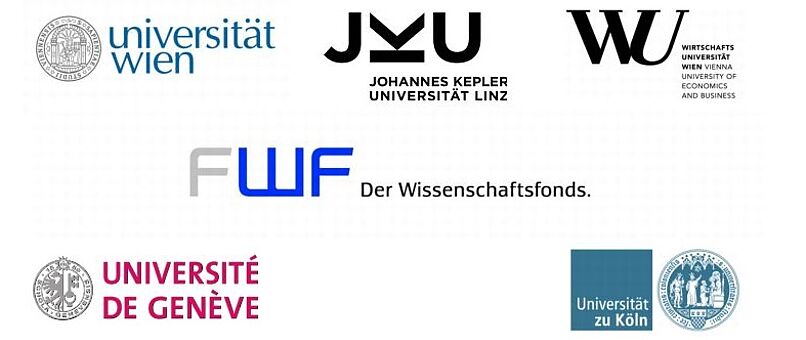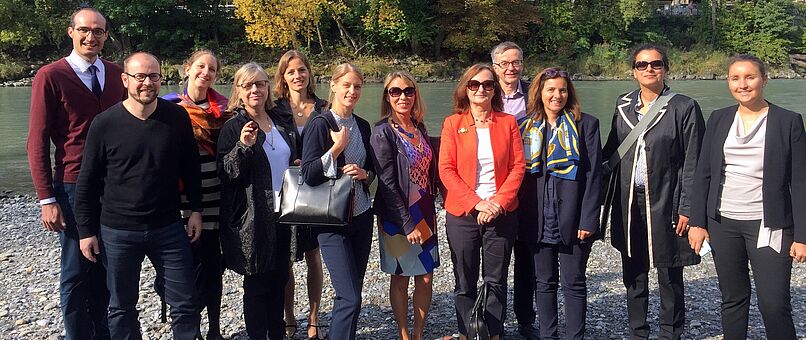FWF-Projektnummer: I 2411-G16
Gegenstand des DACH-Forschungsprojektes, dessen österreichischer Beitrag vom FWF finanziert wird, ist die über die eigene Person hinausgehende Vorsorge sowie die generationenübergreifende Erhaltung von Vermögen in der und für die Familie. Die Umsetzung dieses Anliegens in juristische Strukturen soll als Familienvermögensplanung bezeichnet werden. Vorsorge ist aus volkswirtschaftlicher Sicht grundsätzlich erwünscht, da sie die sozialen Netze entlastet. Demgegenüber gibt es hinsichtlich der Perpetuierung von Vermögenseinheiten Vorbehalte. Dies könnte eine Erklärung dafür bieten, dass es kein gesetzliches Ordnungsmodell für Vermögensplanung gibt. Vermögensplanung erfolgt infolgedessen in Form privatautonomer Gestaltung und liegt daher in den Händen der Kautelarpraxis.
Die zentrale Forschungsfrage lautet, ob und inwieweit das Individuum frei ist und frei sein sollte, für seine Lebensspanne und darüber hinaus sein Vermögen dauerhaft als „Familienvermögen“ zu konstituieren. In der Wissenschaft werden bisher einzelne Fragen der Vermögensplanung isoliert im Gesellschaftsrecht (Gesellschafternachfolge), im Erbrecht (Pflichteilsergänzungsanspruch) oder Familienrecht (Folgen der Ehescheidung) diskutiert. Es fehlt jedoch eine Gesamtschau und Durchdringung aus der Perspektive der vorausschauenden Planung. Diese soll mit dem vorliegenden Projekt rechtsvergleichend für Österreich, die Schweiz und Deutschland geleistet werden.
Das Projekt, das sich den Möglichkeiten und Grenzen der „Familiären Vermögensplanung“ auf rechtsvergleichender Basis widmet, ist für eine Laufzeit von drei Jahren anberaumt und verspricht sehr innovative Erkenntnisse. Auch bei den unabhängigen (und anonymen) Gutachtern des FWF fand das Projekt sehr großen Anklang, wie die durchgängigen Bewertungen als „excellent“ und die nachfolgenden wörtlichen Zitate aus den Gutachten zeigen:
Reviewer A: “From my knowledge this research project provides so much scientific and scholarly knowledge including innovative aspects and originality, that I will consider it to be among the best 5 % in the field worldwide. It is potentially groundbreaking and will probably make a major contribution to knowledge.
The applicant and the researchers involved possess – relative to their academic age – exceptional qualifications by international standards. In addition, the outcome of the project is potentially of major importance to legal practitioners and owners of family businesses.“
Reviewer C: “The strongest commendation I can give, however, is my rather selfish desire to see the project completed. The issue being investigated is of the greatest importance in to (sic) the modern law of family wealth planning. […]
I must add that I am also very favoably (sic) impressed by the large scale of the project. The requested grant is very large by United States standards, at least for research outside of medical and other scientific fields, but when one considers the sheer volume of material and data that must be understood and organized, the request is indeed appropriate. In other words, the proposed project is of appropriate scale. […]
The strong relationships among the principal researchers are the best guarantee of cooperation and integration. […]
These academic biographies show a greater range of interest and publication than is the norm in United States academic life. […]
This is an excellent proposal. It puts sufficient personnel to work for the necessary period of time working with a carefully considered methodology and under the guidance of outstandingly accomplished academics to bring about truly useful results; that is, results useful to both practitioners who are doing the work of family wealth transmission, academics who wish to understand it, and governments who in the end are responsible for the governing formal legal framework.”




